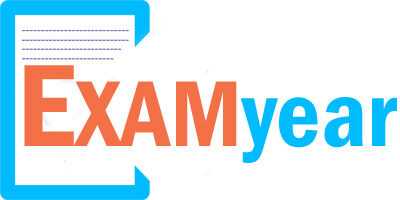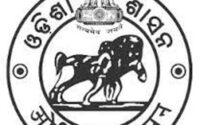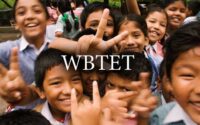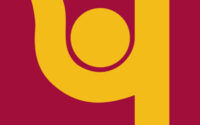WBPSC Librarian Question Papers
In this page, you can find the WBPSC Librarian Question Papers. These Previous Papers will be helpful for the applicants of WB PSC Jobs. The candidates can start preparing for the written test after downloading the Last 5 Years West Bengal Public Service Commission Librarian Government Engineering and Technology College Exam Papers. The downloaded WBPSC Librarian Sample Papers will be useful for the applicants’ proper preparation.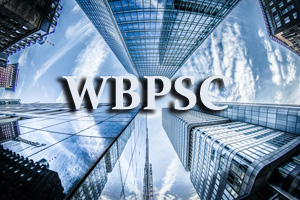
More WB PSC Previous Question Papers are available on its official website. Without visiting the official site, you can download them directly from here for free. These PSCWB Librarian Government Engineering and Technology College Sample Question Papers help the applicants to identify the exam difficulty level, asked questions & answers etc.
Applicants can check the syllabus and exam pattern for WB PSC Librarian exam. The WB PSC Librarian syllabus and Exam Pattern are the important factors that you need to check before going to start your exam preparation. The West Bengal Public Service Commission is going to conduct the written test on tentative dates. WBPSC has given the employment notification to hire eligible aspirants for Librarian Government College vacancies.
Hence, job seekers who wish to work with WB PSC can make use of previous papers given and start your preparation. West Bengal Public Service Commission previous year question paper pdf for Librarian Government Engineering and Technology College examination is given below. This helps in the clear understanding of Librarian Government College question paper pattern. Also, helps in analyzing WBPSC Librarian Question Papers and answers.
WBPSC Librarian Syllabus
UNIT – I
- IPR and Legal Issues — Categories, Conventions, Treaties, Laws.
- Plagiarism: Concept and Types.
- Right to Information Act (RTI); information Technology Act.
UNIT – II
- Library and Information Science Profession – Librarianship as a Profession, Professional Skills and Competences; Professional Ethics.
- Library Public Relations and Extension Activities.
- Type of Users — User Studies, User Education.
UNIT- III
- Sources of Information — Primary, Secondary and Tertiary; Documentary and Non-Documentary.
- Reference Sources — Bibliographical, Biographical, Educational, Language and Geographical.
- Databases: Bibliographic, Numeric, Full Text, Multimedia; Open Access Databases.
- Evaluation of Reference Sources and Web Resources.
UNIT – IV
- Community Information Services.
- Alerting Services — CAS, SDI, Inter Library Loan and Document Delivery.
- Mobile based Library Services and Tools — Mobile OPAC, Mobile Databases, Mobile Library Website, Library Apps, Mobile Library Instructions, Augmented Reality, SMS Alerts, Geo-Location, Reference Enquiry.
- Web 2.0 and 3.0 — Library 2.0 — Concept, Characteristics, Components; Instant Messaging, RSS Feeds, Podcasts, Vodcasts, Ask a Librarian.
- International Information Systems and Networks: INIS, AGRIS, INSPEC, MEDLARS, BIOSIS, ERIC, Patent Information System (PIS), Biotechnology Information System (BIS).
- Library Resource Sharing and Library Consortia — National and International.
UNIT – V:
- Knowledge Organisation: Cataloguing — Cannons and Principles; Centralized and Co-operative Catalogue; Library Cataloguing Codes: CCC and AACR – II.
- Standards of Bibliographic Record Formats and Description — ISBD, MARC 21, CCF, RDA, FRBR, Bibframe.
- Standards for Bibliographic Information Interchange & Communication – ISO 2709, Z3950, Z39.71.
- Metadata Standards: Dublin Core; MARC21, METS, MODES, EAD.
- Indexing Systems and Techniques: Assigned — Pre-coordinate; Post-coordinate; Derived — Title-based; Vocabulary Control.
- Information Retrieval System — Features, Components, Models and Evaluation.
UNIT- VI :
- Library and Information Centers management— Book Selection Tools and Principles; Library Acquisition, Technical Processing, Circulation, Serial Control, Maintenance and Stock Verification; Preservation and Conservation; Hazards and Control Measures of Library Materials.
- Financial Management in Libraries — Sources of Finance, Resource Mobilisation, Budgeting Methods; Cost Effective and Cost Benefit Analysis, Annual Reports & Statistics; Library Authority and Committee.
- Project Management — SWOT, PEST, PERT/ CPM.
- Total Quality Management (TQM) — Concepts, Principles and Techniques, Six Sigma; Evaluation of Services of libraries and Information Centers.
- Management Information System (MIS), MBO, Change Management, Disaster Management, Crisis Management.
UNIT- VII:
- Types of Software — System Software, Application Software.
- Computer Networks — Topologies, Types of Networks — LAN, MAN, WAN.
- Internet – Web browsers, WWW, E-mail; Search Engines, Meta and Entity Search engines.
- Internet Protocols and Standards — HTTP, SHTTP, FTP, SMTP, TCP/IP, URI, URL.
- Hypertext, Hypermedia, Multimedia, Video conferencing, Virtual Reality, Augmented Technologies.
- Data Security, Network Security, Firewalls, Cryptographic Techniques, Anti-virus software, Anti-spyware, Intrusion Detection System.
UNIT – VIII :
- Library Automation — Areas, Planning, Selection of Hardware and Software, Implementation and Evaluation; Standards for Library Automation.
- Barcode, RFID, QR Code, Biometric, Smartcard: Features and Applications.
- Digitization — Planning, Selection of Materials, Hardware, Software, Process, Issues.
- Digital Preservation — Need, Purpose, Standards, Methods, Techniques, Projects (National and International).
- Institutional Repositories — Need, Purpose, Types and Tools; Institutional Repositories in India; ROAR, DOAR, SHARPA-ROMIO.
- Ontology Tools (RDF, RDFS, Potege); Semantic Web, Linked Data, Big Data, Data Mining, Data Harvesting.
UNIT- IX :
- Methods of Data Collection: Questionnaire, Interview, Observation, Library Records, Scales and Checklist.
- Statistical Packages — Spreadsheet, SPSS, Bibexcel, ‘R’ Statistics.
- Impact Factors —Journal, Institutional and Authors; h-Index, g-Index, 110 Index.
UNIT – X:
- Academic Library and Information System.
WBPSC Librarian Previous Year Question
1. What does ‘R’ in PODSCORB stand for?
(a) Re-generate
(b) Re-instate
(c) Reporting
(d) Registering
2. What does ‘MBO’ stand for?
(a) Management by Objectives
(b) Management by Operation
(c) Modern Budget Operation
(d) Management by Orientation
3. Information is being regarded as
(a) a treasure
(b) an inspiration
(c) a national resource
(d) an educational resource
4. Which library is considered an essential part of a modern society, and plays a very important role in the community
(a) Medical Library
(b) Law Library
(c) Public Library
(d) Academic Library
5. A library should have
(a) Monumental design
(b) Functional design
(c) Grand design
(d) Memorable design
6. In order to adjust the layout without carrying out major structural operations, interior of a library building should be
(a) Uniform
(b) Simple
(c) Flat surfaced
(d) Flexible
7. Each piece of library furniture is meant to serve a
(a) Reader
(b) Specific function
(c) Citizen
(d) Staff
8. Built-in furniture for a library should be
(a) Avoided
(b) Recommended
(c) Visioned
(d) Appreciated
9. The first law of Library Science is like
(a) The first rule of Science
(b) The first law of any other science
(c) The first commandment
(d) The first ethic of science
10. To get the Library books used as fully and by as many persons as possible is the main concern of
(a) The first three laws of library science
(b) The fourth law of library science
(c) The first two laws of library science
(d) The fifth law of library science
11. Reference service is a prominent application of which law of library science?
(a) First law
(b) Third law
(c) Fourth law
(d) Fifth law
12. Which law of library science dropped the seeds of Library movement throughout the world?
(a) First law
(b) Second law
(c) Third law
(d) Fourth law
13. Meaningful cooperation is based on what type of collection?
(a) Strong collections
(b) Varied collections
(c) Expensive collections
(d) Multi-lingual collections
14. Lending of books and periodicals to other libraries is called which form of cooperation?
(a) Cooperative lending scheme
(b) Cooperative charging scheme
(c) Cooperative delivery scheme
(d) Cooperative borrowing scheme
15. Creation of a union catalogue on the basis of data supplied by individual libraries is called
(a) Combined catalogue
(b) Cooperative cataloguing
(c) Joint catalogue
(d) Shared catalogue
16. Which provided online service to more than 3,000 libraries?
(a) OCLC
(b) INSDOC
(c) NASSDOC
(d) ICSSR
17. Professional Organisations/Associations serve as a forum for
(a) Resource sharing
(b) Coordinated efforts
(c) Uniform standards
(d) Technical Uniformity
18. IASLIC headquarters is located in
(a) Delhi
(b) Mumbai
(c) Chennai
(d) Kolkata
19. In procuring library books, how much discount of the published prices is to be given by the supplier as per Govt. of India norms?
(a) 5 percent
(b) 10 percent
(c) 15 percent
(d) 20 percent
20. The seal, usually round-shaped, bearing the name of the library and name of city/village is usually stamped on a library book. What is this type of stamp called?
(a) Accession stamp
(b) Receipt stamp
(c) Ownership stamp
(d) Selection stamp
Model Question Papers
The applicants of WBPSC Librarian Government Engineering and Technology College Jobs can download the Previous Year Question Papers from the links attached below. Here, we have provided the WBPSC Librarian Previous Papers Pdf for free download.
Aspirants who are going to attend the Examination can download the WBPSC Librarian Previous Question Papers and practice them. The PSCWB Librarian Government Engineering and Technology College Previous Papers will help you to improve your Solving Skills and also can know the difficulty level of the Examination. Therefore download and practice the WBPSC Librarian Government College Previous Papers and perform well in the Examination.
WBPSC Librarian Sample Question
Candidates who applied for Librarian Posts are in search for the PSCWB Librarian Government College Previous Years Question Papers. For those people, we have given WBPSC Old Papers on this page. So interested Aspirants download and use the PSCWB Librarian Solved Papers in your preparation.
You can also visit the Official Website for more details of WB PSC Librarian Government College Old Question papers. We are providing the WB PSC Librarian Government Engineering and Technology College Solved Question Papers for free download.
Candidates who are searching for the latest Government jobs can use this chance. Candidates who have applied for WB PSC Recruitment can check the Librarian Government Engineering and Technology College Previous Papers on our website.
WBPSC is going to conduct the written test to fill the Librarian vacancies. To get this WB PSC Librarian Government College posts, you should prepare for the exam in a proper way. For this preparation, you need this West Bengal Public Service Commission Syllabus for Librarian Government College Previous Papers. There may be a chance to ask the questions from West Bengal Public Service Commission Previous Papers.
So it is better for you to refer the Librarian Government College Sample Papers before the exam. The Candidate can also check the Latest Employment News on our page.
